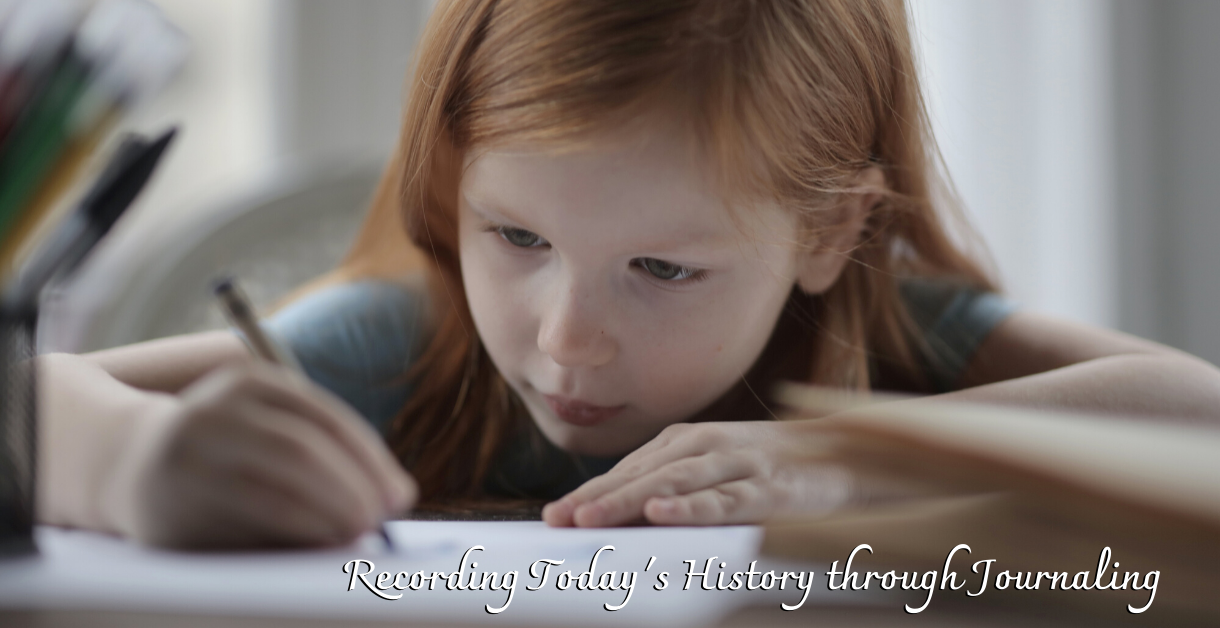Recording Today's History through Journaling

With the current situation in the world with the COVID-19 virus, it is obvious that we are experiencing a major historical event. For many, it is quite a scary time, especially for our children who are trying to understand what is happening. Suddenly mom and dad are watching the news more than usual, many are home from work or are now working from home, we are washing our hands continuously, we can't go visit friends and relatives, play in parks, go on field trips or stand too close to others. Suddenly everyone is a homeschooler and trying to learn how navigate the ins and outs of it with little to no prep time. It is definitely a different world than it was a few short months ago.
It is also an opportune time to encourage our kids to record what is happening and express their feelings through journaling. When we write about the things that are happening in our lives, it is thought that it helps us to reduce stress and improves functionality of the immune system, among other things. Journaling can also become a historical record of what was going on during a particular time and provide testimony as to how we dealt with things.
The wonderful thing about journaling is that it can be done in a variety of ways. In addition to the traditional pen and paper method, kids can find other creative ways to build their journals through photos, audios, art projects and more. They can write paragraphs, make lists, ramble on in audios, take daily photos, produce videos, fashion art and/or compose songs. They may even want to create a scrap book or time capsule that holds a variety of things that can serve as evidence of the time. The goal in this type of journaling is to not only get our feelings out but to also establish a historical legacy with material that is representational of the time. There is no right or wrong way to do it.
In years to come, when this virus has taken its place in history among yellow fever, H1N1, the Spanish, Asian, and Swine Flus, and the other pandemics we have faced, first-hand accounts of this time will not only be valuable to historians, writers and others as well as our families, but they could also provide encouragement and inspiration for future generations.